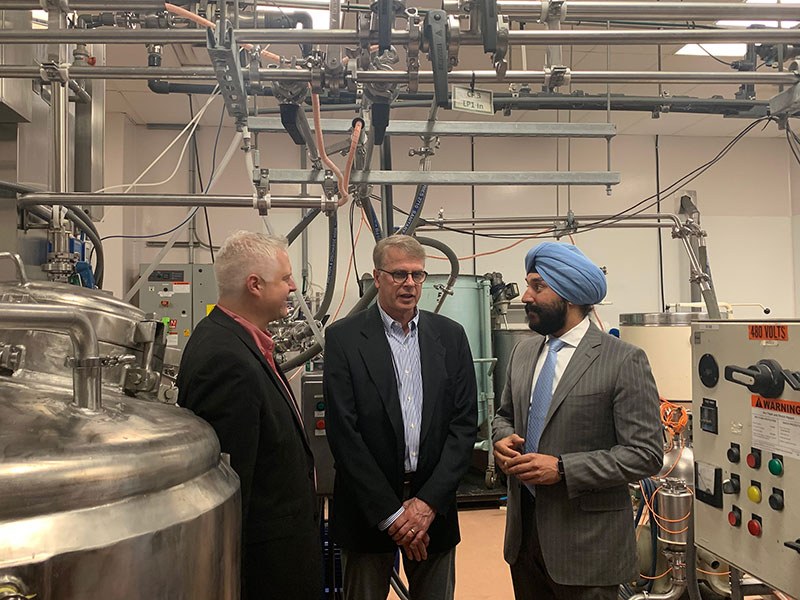Creating high value co-product for hemp and canola using novel processing

Make
Consortia Contribution
$5,670,590
Cluster Contribution
$6,122,678
Botaneco
Corteva
Rainfed Foods
 Goal
Goal
Utilize new canola and hemp to create new oleosome and protein products. Each of the materials (oleosomes and proteins) created will be tested for use in feed and food prodcuts. New novel feed and food ingredients will create new markets for canola and hemp as well as position Botaneco as a world leader in the oleosome and protein extraction technologies.
 Project Summary
Project Summary
Botaneco’s Alofin canola protein concentrate is targeted to the global high-value shrimp and salmon feed producers. Corteva Agriscience contributed canola seed lines with different properties including both elevated protein levels and changes in the protein composition (napin and cruciferin contents). Botaneco investigated these different seed lines for how the different protein levels and protein compositions affected processing including yields, as well as protein and oleosome quality and nutrition impact.
Botaneco has formed several strategic partnerships with companies and consultants who have been instrumental in accelerating our knowledge base, advise on development strategies and provide an extension to our in-house research capabilities. The relationships built within our project (Corteva and Rainfed Foods) will continue beyond the life of the project and become part of our commercial program.
Seven sunflower and canola proteins were tested internally for their solubility, oil and water-holding, foaming and emulsification properties to test the effect of different drying systems. Studies at Saskatchewan FDC investigated the use of supplementary protein to tune the texture and gelation of oleosome-containing emulsions and these oleosomes were tested in different prototype 100 applications. Similarly, work with Manitoba FDC investigated the use of proteins and oleosome-protein combinations to replace label-unfriendly binders in plant-based meat.
Work focused on optimization the milling conditions for canola seed and defatted meal. For sunflower seed, work focused on optimization of protein and oleosome extraction. Process development work was completed to assess the financial impact of Corteva’s high-protein seed on protein recovery in the Alofin process.
 Results and Impact
Results and Impact
- Expanded R&D capabilities through building a food applications team, expanding into a new food innovation lab and conducting joint research with leading external food development centres.
- Formed several strategic partnerships with companies and consultants who have been instrumental in accelerating Botaneco’s knowledge base, advise on development strategies and provide an extension to our in-house research capabilities. These relationships made between the project partners will continue beyond the project, becoming part of Botaneco’s commercial project.
- Tested seven sunflower and canola proteins internally for their solubility, oil and water-holding, foaming and emulsification properties to test the effect of different drying systems.
- Contributed to the development of the Canadian plant protein ecosystem through collaborations with food development centres in Ontario, Manitoba and Saskachewan.
- Collaborated with food science departments at the University of Manitoba, University of Saskatchewan and University of Manitoba.
- Expanded intellectual property capabilities.
- Increased number of overall employees.
- Increased percentages of Botaneco employee diversity with: 46 per cent who identify as women, 43 per cent visible minorities, and 46 per cent immigrants to Canada.


